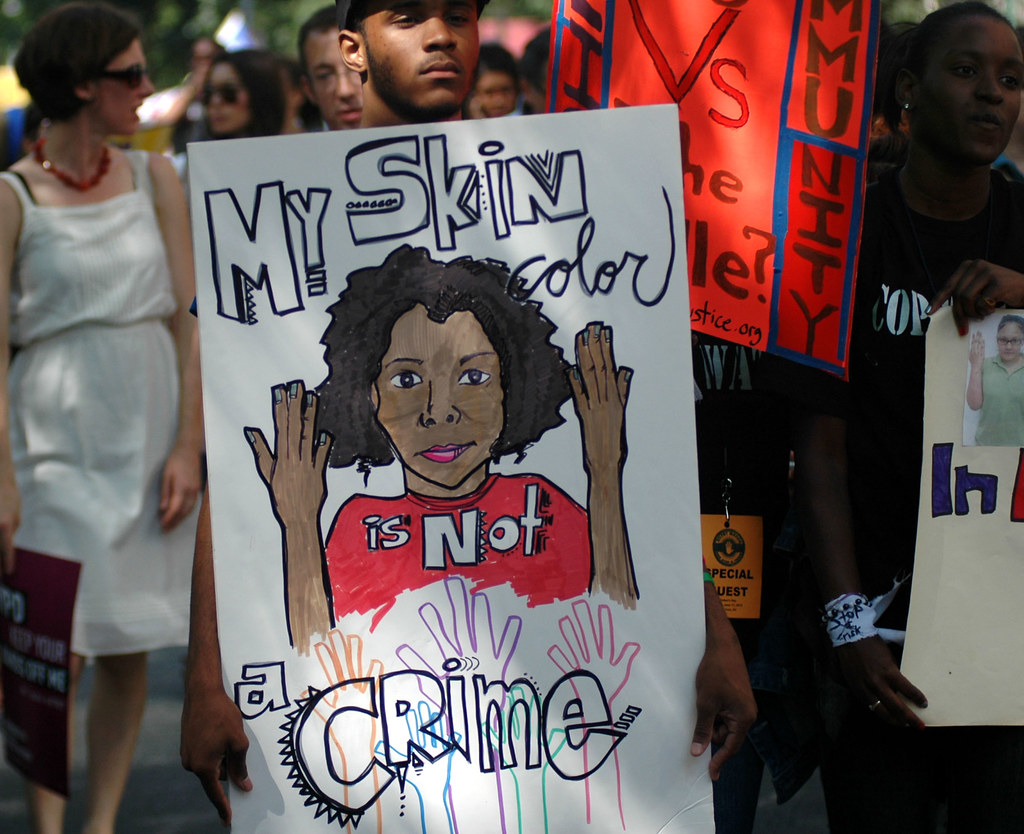
Good news. Racist stop and frisk isn’t only a New York phenomenon. It happens in London too. In what may become a landmark case, Ann Roberts is hoping to change that.
Ann Roberts is a 38-year old Black woman. She is mother to an 18-year-old son. Until two years ago, she worked as a college special needs assistant. She had never had a run-in with the law … until September 9, 2010.
On September 9, 2010, Ann Roberts was on her way home from work. She was on a bus, when the conductor realized she didn’t have enough money on her fare card. The conductor then demanded to see the contents of her bag, claiming they were in a gang and knife crime hotspot. She asked to be taken to the police station, rather than have the search on the bus, so as to avoid any embarrassment in front of her colleagues and students.
Instead, the police came, and six police officers wrestled her to the floor and pinned her face down, and handcuffed. They searched her purse and found no weapons. Instead, the officers found credit cards with two names, and so charged her with fraud. Roberts explained that she was recently married and hence was in the process of changing over her cards. Despite the truth of her statement, Ann Roberts was taken to the police station, where she was first tested for drugs and charged with fraud, threatened with a crack cocaine charge, and issued a caution for having obstructed an arrest. Her drug test came back negative, and the charge was dropped. The caution was dropped. The fraud charge was dropped. Meanwhile, Ann Roberts spent eight hours behind bars.
Afterwards, Roberts reflected, “One of the officers pulled the chain from around my neck and broke it. It wasn’t valuable but it was the force they used, the action. I ended up with a bleeding right hand and injuries to my arm and shoulder. I had to go to hospital next day.”
Despite being cleared of all charges, Ann Roberts was suspended from her job working with vulnerable young people. She had become a security risk.
Ann Roberts is a Black woman in an urban stop-and-search regime. It’s a story of prime real estate, urban hyper-development, metropolitan growth, and `disposable’ populations. Stop-and-search is not universal. In many parts of the United Kingdom, it almost never occurs. In London, it’s the order of the day. According to one report, a Metropolitan police officer is about 30 times more likely to stop-and-search to stop a black person than a colleague outside London.
Stop-and-search as a means of virtually unregulated control came into force in 1994, under section 60 of the Criminal Justice and Public Order Act 1994. Originally it was meant to combat football hooliganism and late-night raves. In what some call “mission creep”, the number of section 60 stops went from 7,970 in 1997/98 to 118,112 in 2009/2010. That is no creep. That is a breathtaking leap, especially if one considers these numbers are concentrated in London. Neither creep nor leap, it’s an occupation.
Who’s the target? Black and Asian communities. During 2011, a Black person was 29.7 times more likely to be stopped and searched than a white. Asian people were 7.6 times more likely to be stopped and searched. Every year, the gap has increased. Section 60 is the mapping of Black and Asian communities in London’s metropolitan renewal.
When Ann Roberts was taken down, she said, “Enough is enough.” She spoke the unspeakable truth: she charged section 60 with racism, arguing it is a violation of the European Convention on Human Right. This week, the High Court gave Ann Roberts permission to challenge the legality of powers granted to police under section 60 of the Criminal Justice and Public Order Act 1994. The struggle continues.
(Photo Credit: blackexperienceofpolicing.org)
